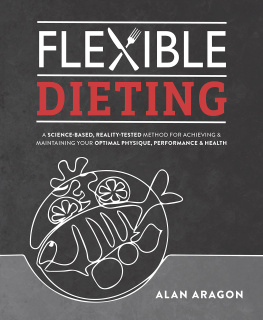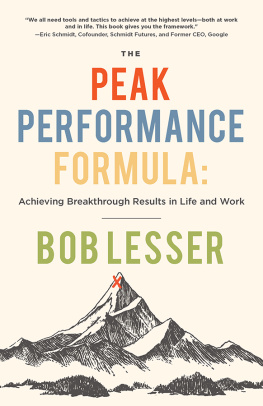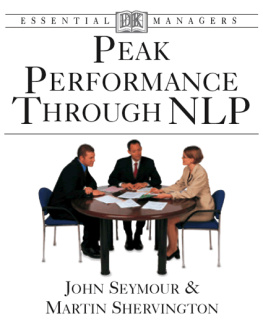Alan Fine - You Already Know How to Be Great: A Simple Way to Remove Interference and Unlock Your Greatest Potential
Here you can read online Alan Fine - You Already Know How to Be Great: A Simple Way to Remove Interference and Unlock Your Greatest Potential full text of the book (entire story) in english for free. Download pdf and epub, get meaning, cover and reviews about this ebook. year: 2010, publisher: Portfolio Hardcover, genre: Religion. Description of the work, (preface) as well as reviews are available. Best literature library LitArk.com created for fans of good reading and offers a wide selection of genres:
Romance novel
Science fiction
Adventure
Detective
Science
History
Home and family
Prose
Art
Politics
Computer
Non-fiction
Religion
Business
Children
Humor
Choose a favorite category and find really read worthwhile books. Enjoy immersion in the world of imagination, feel the emotions of the characters or learn something new for yourself, make an fascinating discovery.

- Book:You Already Know How to Be Great: A Simple Way to Remove Interference and Unlock Your Greatest Potential
- Author:
- Publisher:Portfolio Hardcover
- Genre:
- Year:2010
- Rating:5 / 5
- Favourites:Add to favourites
- Your mark:
You Already Know How to Be Great: A Simple Way to Remove Interference and Unlock Your Greatest Potential: summary, description and annotation
We offer to read an annotation, description, summary or preface (depends on what the author of the book "You Already Know How to Be Great: A Simple Way to Remove Interference and Unlock Your Greatest Potential" wrote himself). If you haven't found the necessary information about the book — write in the comments, we will try to find it.
In trying to improve-on the playing field, in the office, or even at home-most people seek out new information to get to the next level. They read a book, attend a class, or hire an expert to give them an edge.
But Alan Fine, an accomplished tennis, golf, and executive coach and a renowned authority on peak performance, believes that this outside-in method is precisely whats holding you back from doing your best work. Hes found the biggest obstacle to improved performance isnt not knowing what to do; its not doing what you already know. Ironically, the quest for information and instructions designed to help you get ahead can often interfere with your ability to focus on doing something.
Fine reveals his simple and proven approach to achieving breakthrough performance. It starts with reducing the interference that blocks your potential through an amazing process called G.R.O.W. (Goal, Reality, Options, Way Forward).
No matter who you are or what you do, You Already Know How to Be Great will help you eliminate what is standing in the way of your goals.
Alan Fine: author's other books
Who wrote You Already Know How to Be Great: A Simple Way to Remove Interference and Unlock Your Greatest Potential? Find out the surname, the name of the author of the book and a list of all author's works by series.




